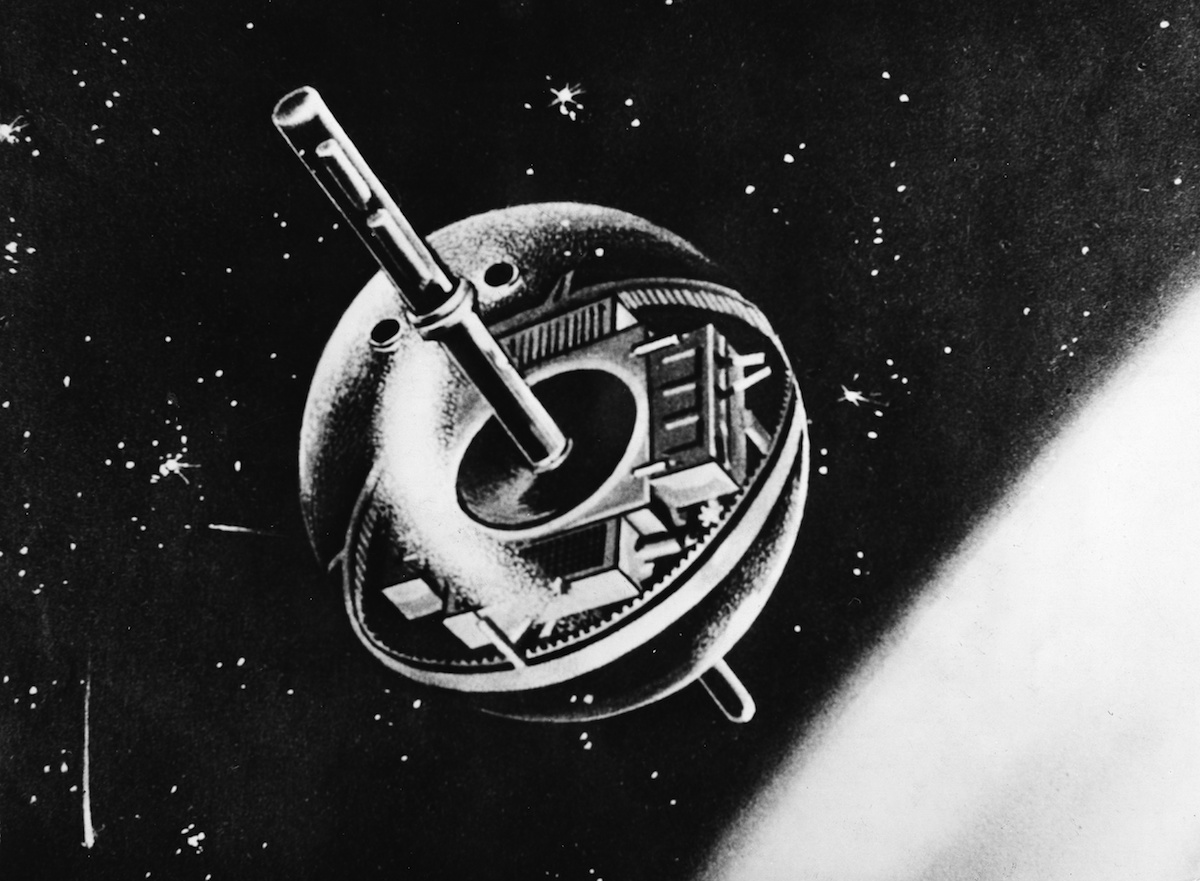
The Soviets called it sputnik, meaning simply “satellite” or “fellow traveler.” But to American space-watchers of 60 years ago, the satellite that launched on Oct. 4, 1957 had many meanings: defeat and discovery, but also the promise of the space race that was to come.
The launch — the anniversary of which coincides with the beginning of World Space Week — came as a surprise to scientists and officials in the U.S., though they quickly downplayed their shock that the USSR had the ability to get a heavy satellite into orbit, a feat the U.S. had not yet accomplished. The following week’s issue of TIME explained how the news broke:
Hurtling unseen, hundreds of miles from the earth, a polished metal sphere the size of a beach ball passed over the world’s continents and oceans one day last week. As it circled the globe for the first time, traveling at 18.000 m.p.h., the U.S. was blissfully unaware that a new era in history had begun, opening a bright new chapter in mankind’s conquest of the natural environment and a grim new chapter in the cold war.
The news came in a broadcast by Moscow radio, and it got to Washington in an ironic way. At the Soviet embassy on 16th Street that evening, some 50 scientists of 13 nations, members of the International Geophysical Year rocket and satellite conference, were gathered at a cocktail party. After the vodka, Scotch and bourbon started to flow, New York Times Reporter Walter Sullivan got an urgent phone call from his paper, hurried back to whisper in the ear of a U.S. scientist. A moment later Physicist Lloyd Berkner rapped on the hors d’oeuvre table until the hubbub quieted. “I wish to make an announcement,” he said. “I am informed by the New York Times that a satellite is in orbit at an elevation of 900 kilometers [559 miles]. I wish to congratulate our Soviet colleagues on their achievement.”
As the science section added, that achievement was quite remarkable: sputnik was heavier than expected — more than eight times heavier than the satellite the comparable U.S. project had been looking at — which meant that Soviet rocket capabilities were impressive. The satellite also flew higher than the American scientists had thought possible.
Scientists turned on their gear to track sputnik as radio stations and amateur astronomers alike sought the telltale sound it emitted — a sound TIME called “those chilling beeps,” acknowledging that the remarkable scientific achievement was also hard proof of Communist success in a Cold War world in which scientific advancement was seen as a proxy for military might.
However, as TIME noted, at least some people saw sputnik as a good sign for the U.S., realizing that it was just the kick the nation needed to commit seriously to space exploration. The reason for the Soviet success was not superior thinking, they felt, but rather that the U.S. had not yet decided to commit to the cause. As the space race got into gear, those people could hardly have known just how right they were.
More Must-Reads from TIME
- Cybersecurity Experts Are Sounding the Alarm on DOGE
- Meet the 2025 Women of the Year
- The Harsh Truth About Disability Inclusion
- Why Do More Young Adults Have Cancer?
- Colman Domingo Leads With Radical Love
- How to Get Better at Doing Things Alone
- Michelle Zauner Stares Down the Darkness
Write to Lily Rothman at lily.rothman@time.com